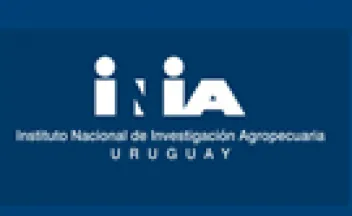Instituto Nacional de Investigación Agropecuaria
Soil and rhizosphere bacterial diversity in maize agro-ecosystem.

ABSTRACT. Management practices used in maize production have an impact on soil agro- ecosystems where different microbial communities coexist. Soil inhabiting bacteria are numerous and diverse, but we know very little about their ecological distribution. Here we analyzed the bacterial community diversity in the rhizosphere of two transgenic maize cultivars, in agricultural soil before sowing and in non-cultivated soil in an experimental site in the south region of Uruguay.
Field-based phenotyping for wheat diseases within a new multiple diseases platform in Uruguay:promoting germplasm sharing to increase resistance diversity.

Key message:Data from multiple traits obtained in this platform, complemented by molecular selection technologies, would increase the prediction value of phenotype/genotype data for new germplasm emerging from the partners breeding pipelines. Breeding for durable disease resistance in wheat is a challenging task since it is usually quantitatively inherited, thus relying on the accumulation of QTL involved in resistance. This goal could be achieved by the use of a broad spectrum of resistance sources.
Field-based phenotyping for wheat diseases within a new multiple diseases platform in Uruguay: promoting germplasm sharing to increase resistance diversity.

Key message: Data from multiple traits obtained in this platform, complemented by molecular selection technologies, would increase the prediction value of phenotype/genotype data for new germplasm emerging from the partners breeding pipelines. Breeding for durable disease resistance in wheat is a challenging task since it is usually quantitatively inherited, thus relying on the accumulation of QTL involved in resistance. This goal could be achieved by the use of a broad spectrum of resistance sources.
Paginación
- Página anterior
- Página 211
- Siguiente página
